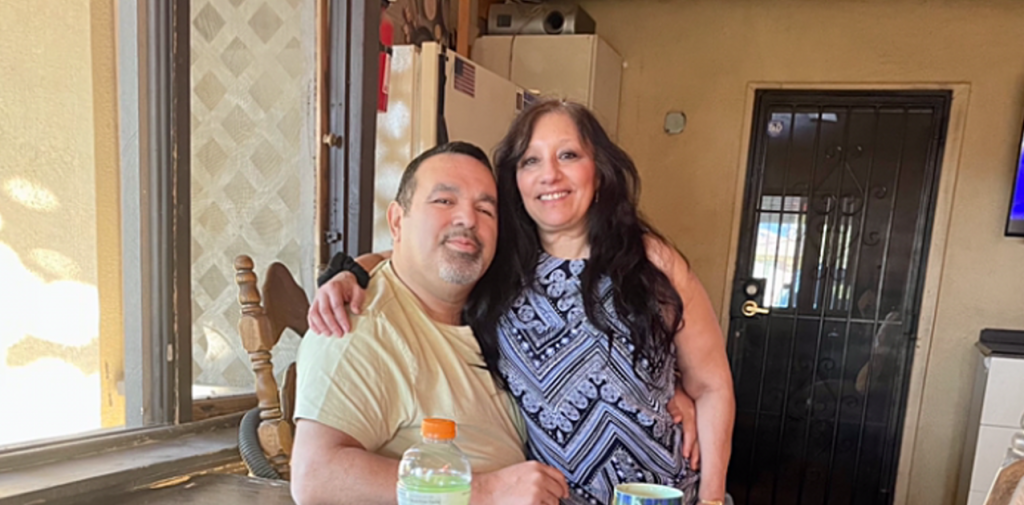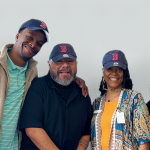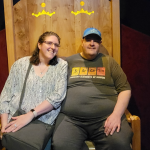Saluting William: A Navy Veteran and Dialysis Patient with a Brand-New Set Of “Orders”
As a young man, William spent four years traveling the world by sea. He visited many countries, including Singapore, Sri Lanka, and Dubai. He spent time on each of the Hawaiian Islands. He saw ports of call in frigid Alaska, as well as sunny Mexico. But William wasn’t on vacation, and he certainly wasn’t pleasure cruising. He was serving our country and protecting our freedoms as a member of the U.S. Navy during Operation Desert Storm.
“It was quite a busy tour,” recalls William, now 57. “But it was exactly what the Navy said it would be – it was an adventure, and one of most amazing things I’ve ever done.”
During his time in the military William started another adventure, when he married his wife of 30 years, Irma – “I met a really beautiful woman and the rest is history,” he says. Children soon followed – two girls, Katherine and Tiffany. William parlayed his Navy experience into civilian work at powerplants in southeastern California, and his “mission” became raising a family.
As the years passed, William watched his girls grow into adults, earn degrees, and start successful lives of their own. He was especially proud when Tiffany followed in his footsteps and joined the Airforce, where she worked in cybersecurity, protecting our nation from foreign threats. What William didn’t realize all this time was that – little by little – a different kind of adversary was threatening his health.
“I was born with a horseshoe kidney, which is when both of your kidneys are fused together,” William explains. “I wish I had paid more attention to it when I was younger, but I was just trying to build a life for my family. I didn’t know what kind of damage was being done.”
Throughout his thirties and forties, William’s kidney function slowly declined, but he never had any symptoms. It wasn’t until 2018 that he found out just how bad things had gotten. A routine physical showed high amounts of protein in his urine – a condition known as both proteinuria and albuminuria – a sign his kidneys were failing. Doctors monitored William, and in January 2020 he had a fistula created. Six months later he started in-center hemodialysis (ICHD) treatments, three days a week.
“Many times, I’d come home and just konk out, which isn’t good when you’re looking forward to spending time with your wife. It was like she was taking care of a zombie..”
William was never comfortable getting his therapy at a clinic and says he “felt trapped” by the rigid schedule, wait times, and long hours in a chair. In addition, he didn’t like the way he felt after ICHD treatments.
“I would leave the center at about 3:45 p.m., I would feel drained the rest of the day – just really bad,” he remembers. “Many times, I’d come home and just konk out, which isn’t good when you’re looking forward to spending time with your wife. It was like she was taking care of a zombie.”
The reality was, this Navy veteran – who served to preserve his country’s liberty – was losing his own. And he wanted it back.
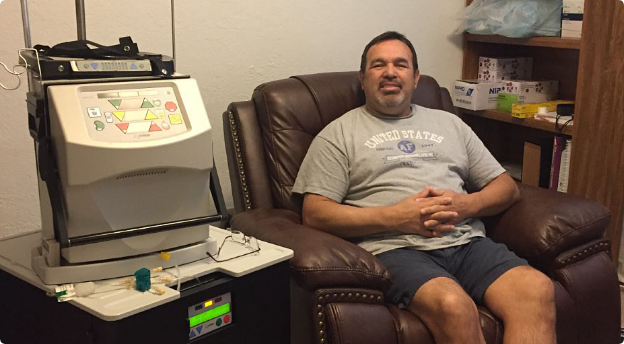
In conversations at the clinic and VA Hospital, William kept hearing about home hemodialysis (HHD), but he wasn’t quite sure what it was – or if it was the right thing for him. On one visit, a nurse offered to show him a NxStage System HHD machine. He was intrigued.
“I wasn’t sure if I could do it, but after talking to my doctor, we decided to give it a try,” says William. Right about that time, William fell from his roof and suffered a badly broken leg, but he was so determined to come home that he traveled two hours round-trip every day until his training was complete. “I’m so glad I did that, because I don’t know what I’d do without more frequent HHD,” he says.
William now does his prescribed therapy on his own schedule, on days and times that work best. Since starting more frequent HHD, he says he has more energy, has gone back to work, and is able to enjoy more time with his family. He watches murder mysteries with Irma, and they spend lots of time walking and playing with their two big Huskies, Chief and Sofie. To make treatment time more comfortable and organized, they decided to make a spare room into William’s dialysis space.
“It’s beautiful – there’s supply shelves, a place for my machine, and my daughter got me a recliner so I can be comfortable while dialyzing,” William describes.
“I feel healthier now than I did in 2019. And because I can do my therapy at home, I’m free now. I just feel freer”
Besides Irma, who trained alongside her husband and helps him with things like taping and connecting his lines, William says his biggest supporters are his nurses. One who really stands out is Nelson, his home training nurse.
“Nelson is 110% supportive, very friendly and very smart,” says William. “When it comes to HHD, he knows everything about everything. if you don’t understand something he’ll
spend time and work with you until you get it. He also calls and texts me to make sure I’m staying on my schedule, keeping up with maintenance, labs, and more.”
In addition to his care team, William says NxStage’s Technical and Customer Support teams have been extremely helpful as he’s gotten up to speed.
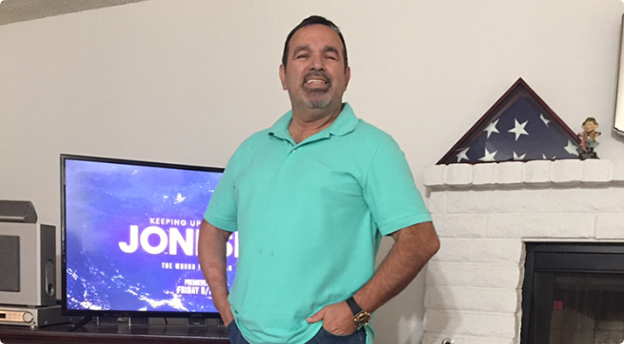
“I’ve only been doing this a couple of months, and I’m still learning,” explains William. “They’ve answered every question I’ve asked them, and I’ve had quite a few.”
Although still new to HHD, William recognizes the benefits it has provided him, and says he feels better than he has in years.
“Healthwise, things have calmed down quite a bit for me,” he says. “I feel healthier now than I did in 2019. And because I can do my therapy at home, I’m free now. I just feel
freer.”
Not all patients may experience these benefits

